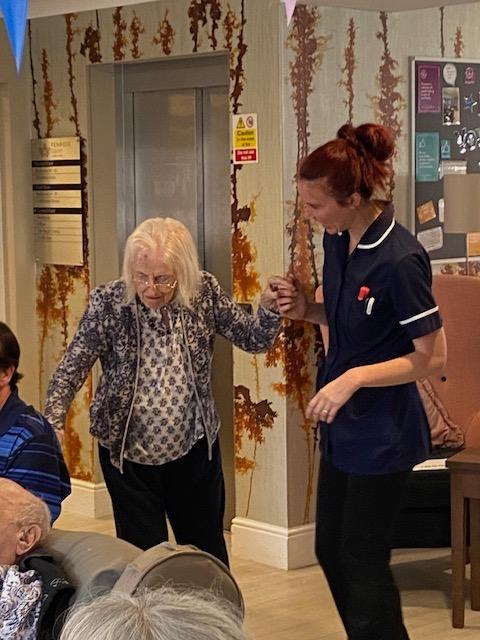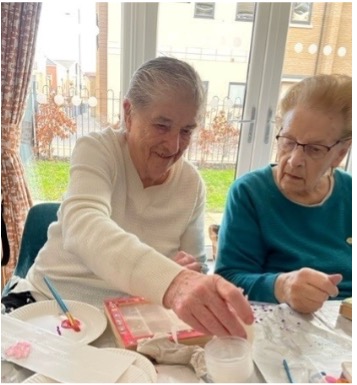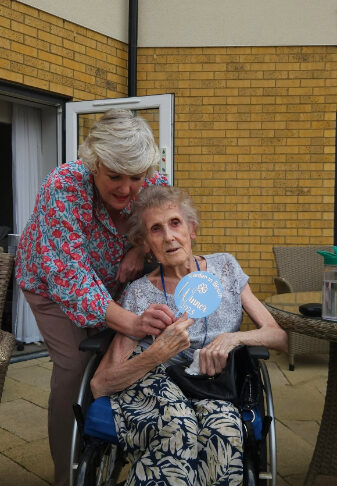What Happens if Care Needs Change? Continuum of Care Guide

When searching for the right care home, one of the biggest worries for families is what happens if their loved one’s needs change over time. Many people enter care when they only require a little help with daily living, but health and personal circumstances rarely stay the same forever. This is where the concept of the continuum of care becomes so important.
The continuum of care ensures that residents receive consistent, flexible, and appropriate support as their needs evolve. Instead of moving from one facility to another, residents remain in familiar surroundings with staff who already understand their preferences, routines, and personalities. This approach reduces stress, provides peace of mind, and creates a truly person-centred care journey.
What is the Continuum of Care?
The continuum of care is a model designed to meet people’s health and wellbeing needs across different stages of life. It is not about one specific service but a range of connected support that adapts to each person’s changing situation.
In the context of a care home, the continuum of care might include:
- Residential care for those who need support with daily activities such as bathing, dressing, or meals.
- Nursing care for residents who have medical conditions requiring round-the-clock clinical support.
- Dementia care for individuals living with memory loss, confusion, or cognitive decline.
- Respite care for short-term stays that provide families and carers with a much-needed break.
The key point is that residents can transition between these types of care without leaving the home. This continuity helps preserve stability and security, which are especially valuable in later life.



How Does it Work in a Care Home Setting?
In a care home that embraces the continuum of care, staff work closely with residents and their families to create detailed, personalised care plans. These plans are living documents, regularly reviewed and updated as needs change.
For example, a new resident may join on a residential basis, enjoying an independent lifestyle with support available when required. Over time, if their mobility decreases or a medical condition develops, they may transition into nursing care. Later, if they experience memory challenges, they may require dementia care. At each stage, their care plan evolves seamlessly, with the same trusted staff providing support.
This approach not only avoids disruptive moves but also ensures care is delivered in a way that respects personal routines, social preferences, and long-term wellbeing.
The Benefits of the Continuum of Care
Choosing a care home with a continuum of care model offers a wide range of benefits.
- Familiarity and consistency
Remaining in one environment with the same caregivers helps residents feel safe and secure. For those with dementia, where routine and recognition are vital, this continuity can have a significant impact on quality of life. - Holistic wellbeing
The continuum is not limited to medical needs. It includes social, emotional, and recreational support, recognising that wellbeing is about much more than healthcare. Activities, dining experiences, and community life all play a role. - Personalised care planning
Every resident is unique. Care plans are tailored to reflect individual needs, updated regularly, and designed to support independence for as long as possible. - Peace of mind for families
Relatives know that their loved one will not be uprooted if their health changes. This reassurance allows families to focus on enjoying meaningful time together rather than worrying about logistics. - Smoother healthcare journeys
Because staff are already familiar with residents’ histories and needs, they can act quickly and effectively if health concerns arise, reducing unnecessary hospital stays. - Cost and resource efficiency
Having all levels of care under one roof avoids duplication of services and ensures resources are used more effectively, while still maintaining high standards.


Continuum of Care in Everyday Life
To understand how the continuum works in practice, imagine a resident who moves into a care home after struggling with daily tasks at home. At first, residential care provides help with meals and personal care, while they still enjoy hobbies, socialising, and outings.
After a few years, their health changes, and they need more clinical support. Instead of relocating to a hospital or another facility, their care plan is adapted to include nursing care within the same home. Staff who already know them well continue to provide support, and family visits carry on without disruption.
Later, if dementia symptoms develop, the home’s dementia care services ensure safety and comfort while preserving independence where possible. At every stage, the focus remains on dignity, wellbeing, and maintaining as much of their lifestyle as possible.
This example highlights how the continuum of care adapts naturally over time, removing uncertainty and providing reassurance for both residents and their loved ones.
Why Families Should Consider Continuum of Care
For families choosing a care home, it can be tempting to focus only on current needs. However, thinking ahead is just as important. Care requirements often change gradually, and sometimes unexpectedly, so planning for the future is vital.
A care home that offers the continuum of care provides reassurance that no matter how needs develop, the right support will always be available. Families do not need to worry about searching for another home, transferring records, or helping their loved one adjust to a new environment. Instead, they can feel confident that the care journey will remain smooth, supportive, and consistent.
Continuum of Care at Penrose Court Care Home
At Penrose Court Care Home in Biggleswade, we are proud to provide a full range of care services under one roof, including residential, nursing, dementia, and respite care. This means residents can continue living in the same welcoming community while receiving the right support for their evolving needs.
Our approach is centred on compassion, dignity, and personalisation. Every care plan is shaped around the individual, regularly reviewed, and delivered by a dedicated team who truly get to know each resident. Alongside professional care, we place great importance on social life, activities, and creating a warm and vibrant atmosphere where people can thrive.
If you would like to learn more about how we deliver person-centred care through the continuum model, we would be delighted to speak with you. Call us on 01767 777000 or get in touch with our team to arrange a visit and see Penrose Court Care Home for yourself.





